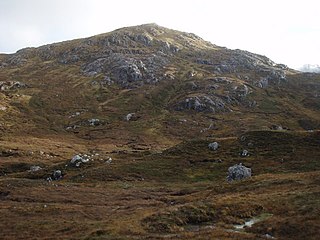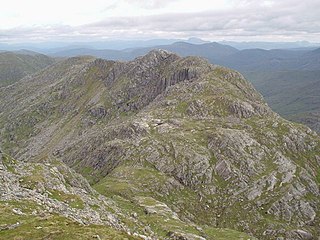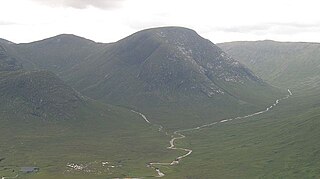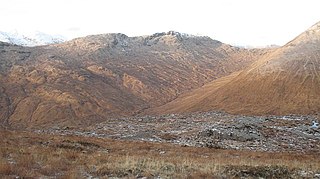| Breabag | |
|---|---|
 Looking up towards Breabag from the west | |
| Highest point | |
| Elevation | 815 m (2,674 ft) [1] |
| Prominence | 307 m (1,007 ft) |
| Listing | Corbett, Marilyn |
| Geography | |
| Location | Sutherland, Scotland |
| Parent range | Northwest Highlands |
| OS grid | NC286157 |
| Topo map | OS Landranger 15 |
Breabag (815 m) is a mountain in the Northwest Highlands of Scotland, in the Assynt area of Sutherland.
The Northwest Highlands are located in the northern third of Scotland that is separated from the Grampian Mountains by the Great Glen. The region comprises Wester Ross, Assynt, Sutherland and part of Caithness. The Caledonian Canal, which extends from Loch Linnhe in the south-west, via Loch Ness to the Moray Firth in the north-east splits this area from the rest of the country. The city of Inverness and the town of Fort William serve as gateways to the region from the south.

Assynt is a sparsely populated area in the south-west of Sutherland, lying north of Ullapool on the west coast of Scotland. Assynt is known for its landscape and its remarkable mountains, which have led to the area, along with neighbouring Coigach, being designated as the Assynt-Coigach National Scenic Area, one of 40 such areas in Scotland.

Sutherland is a historic county, registration county and lieutenancy area in the Highlands of Scotland. Its county town is Dornoch. Sutherland borders Caithness and Moray Firth to the east, Ross-shire and Cromartyshire to the south and the Atlantic to the north and west. Like its southern neighbour Ross-shire, Sutherland has some of the most dramatic scenery in the whole of Europe, especially on its western fringe where the mountains meet the sea. These include high sea cliffs, and very old mountains composed of Precambrian and Cambrian rocks.
A flat-topped summit, it is usually climbed from its western flank, where the Bone Caves of Assynt are located. The nearest settlement is Inchnadamph. [2]
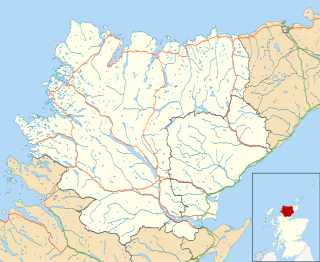
Inchnadamph is a hamlet in Assynt, Sutherland, Scotland. The name is an anglicisation of the Gaelic name Innis nan Damh meaning 'meadow of the stags'. Assynt is a remote area with a low population density and Inchnadamph contains a few houses, a lodge and a hotel.





